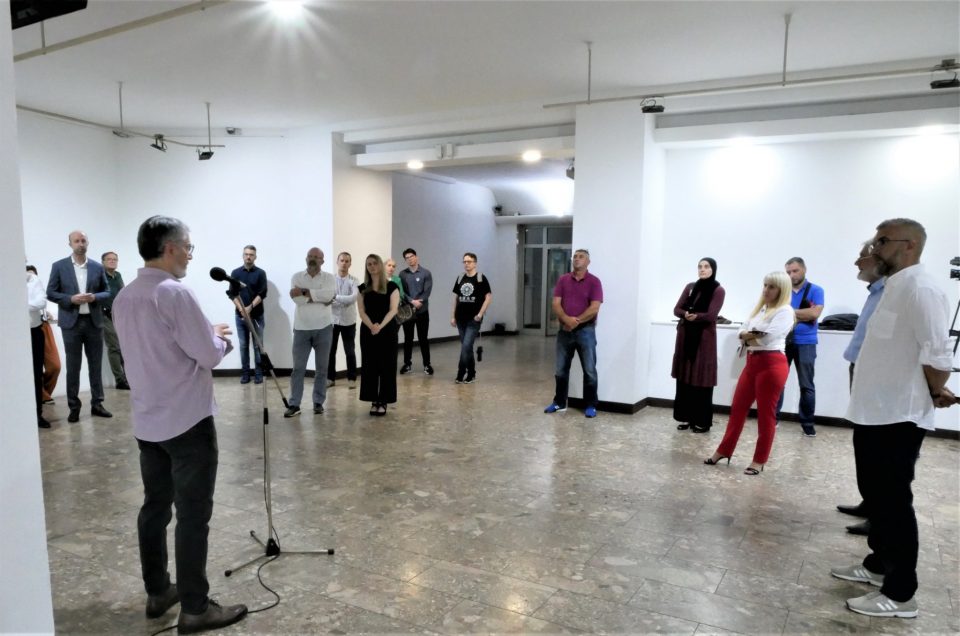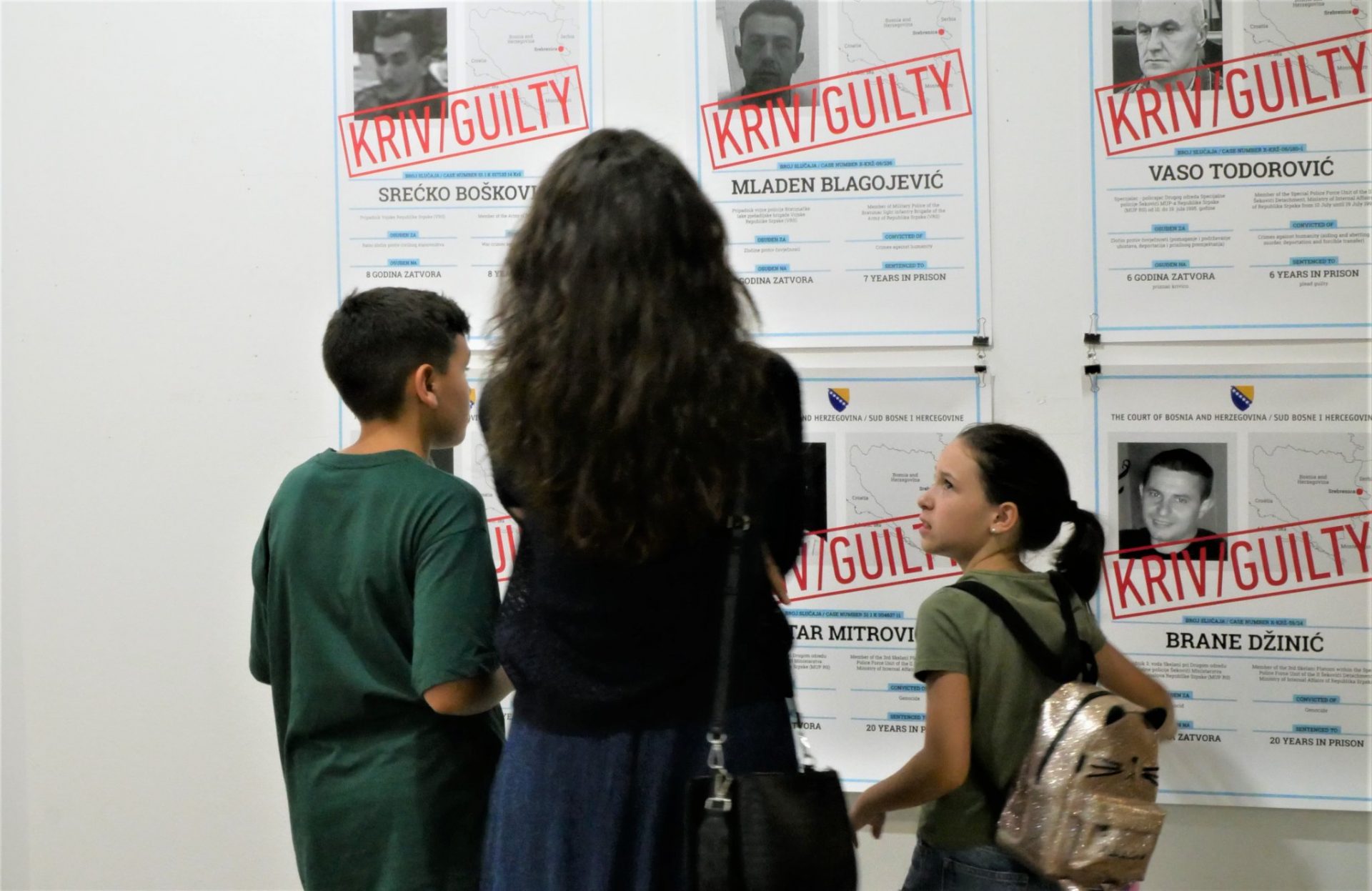
In the Bosnian Cultural Center in Tuzla, the exhibition “Genocide in Srebrenica Through Legal Judgements” was opened as part of Srebrenica Genocide Remembrance Day. The exhibition is a part of the joint research project of the Srebrenica Memorial Center and the Post-Conflict Research Center.
“Genocide in Srebrenica Through Legal Judgements” presents all of the individuals who were convicted of genocide, crimes against humanity, and war crimes by the final verdicts of the International Criminal Tribunal for the former Yugoslavia, later the International Residual Mechanism for Criminal Courts, the Court of Bosnia and Herzegovina, and the High Court in Belgrade.
Velma Šarić, founder and president of the Post-Conflict Research Center, said that this exhibition in Tuzla presents the judicially-established facts in order to make them accessible to younger generations in a clearer and more creative way.
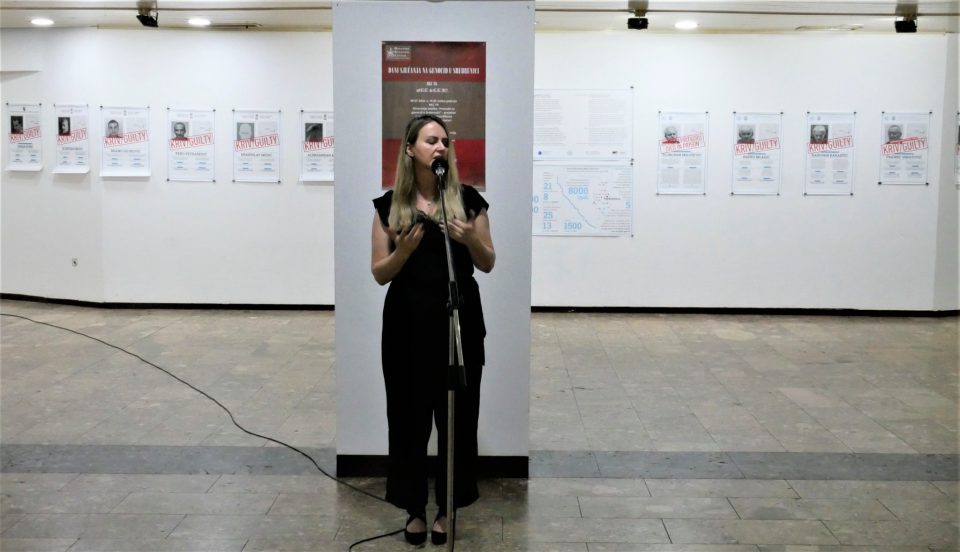
“With this project, we want to show citizens how many people were sentenced for the genocide in Srebrenica. We know that more than 8,000 men and boys were killed, and 53 people have been sentenced so far. With the project, we want to emphasize how important it is to continue prosecuting war crimes, but also to educate young people about the facts,” said Šarić.
She notes that the project includes verdicts for other municipalities as well, such as Prijedor, Zvornik, and Višegrad. By the end of this year, she says that the Srebrenica Memorial Center and the Post-Conflict Research Center will create an interactive database showing exactly how many people have been sentenced for war crimes and genocide in Bosnia and Herzegovina.
Amir Kulaglić, President of the subcommittee for the 2022 Peace March, said that the genocide in Srebrenica is a forensic, theoretical, scientific, and legal truth, which was the result of a systemic crime. In the fight for accountability for the genocide, Kulaglić emphasized the 27-year struggle of the “mothers and sisters,” who found the strength to fight for truth and justice, testify in judicial proceedings, persevere in the search for the bones of all those who are considered disappeared and in bringing the perpetrators to justice.
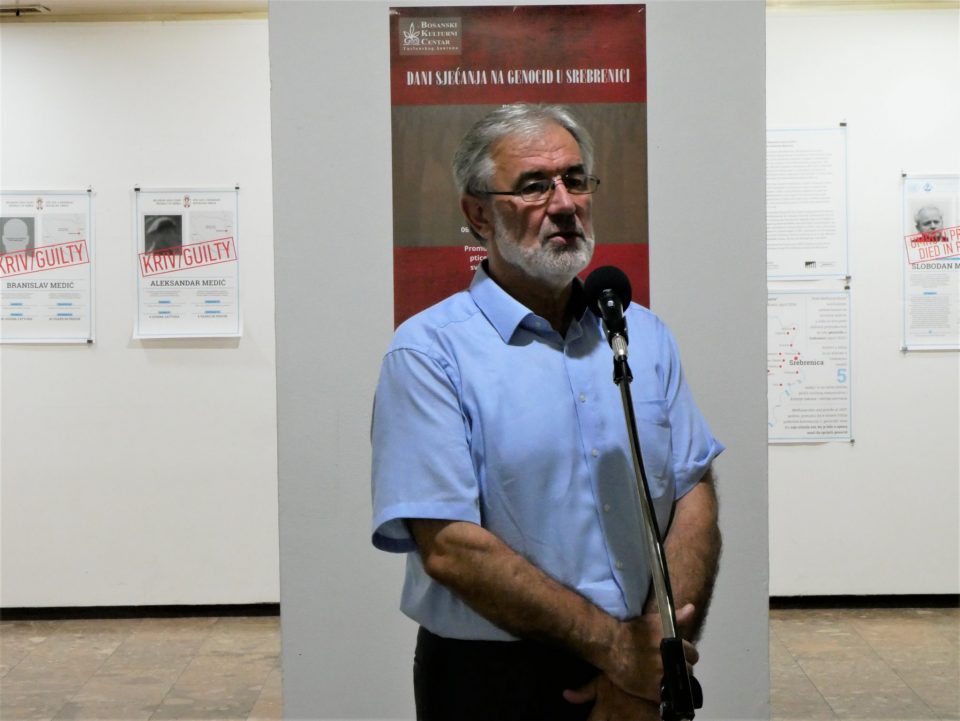
Nemanja Stjepanović, a researcher for the Program of the Mechanism for Informing Communities Affected by Conflicts, said that the trials before the International Residual Mechanism for Criminal Courts are more or less over for the areas of the former Yugoslavia, but that now we have court-established facts, an extensive archive, and an abundance of documentary evidence. This includes wartime diaries, intercepted conversations, as well as testimonies such as videos, which are accessible.
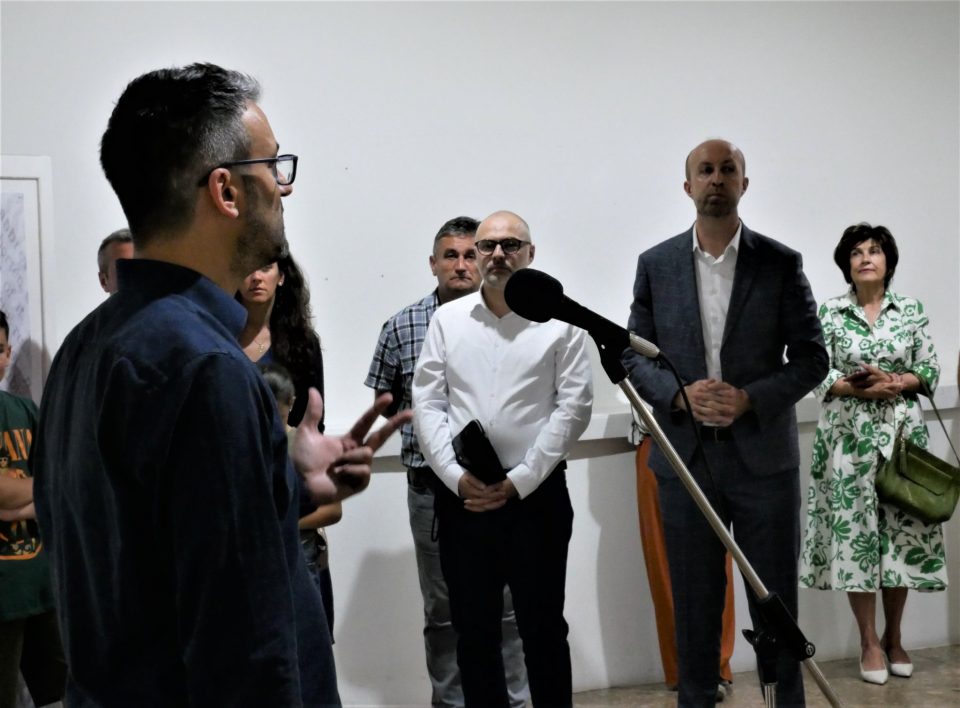
“These verdicts for genocide and crimes against humanity in Srebrenica can be encouraging for young people, that is, for new projects that can involve thousands of people,” said Stjepanović.
Vedad Gurda, a professor at the Faculty of Law at the University of Tuzla, cited data from the research, according to which a total of 1,054 people were convicted in all courts, including courts in Germany, Norway, and other countries which prosecuted war crimes committed in Bosnia and Herzegovina, comparing that number with tens of thousands of victims.
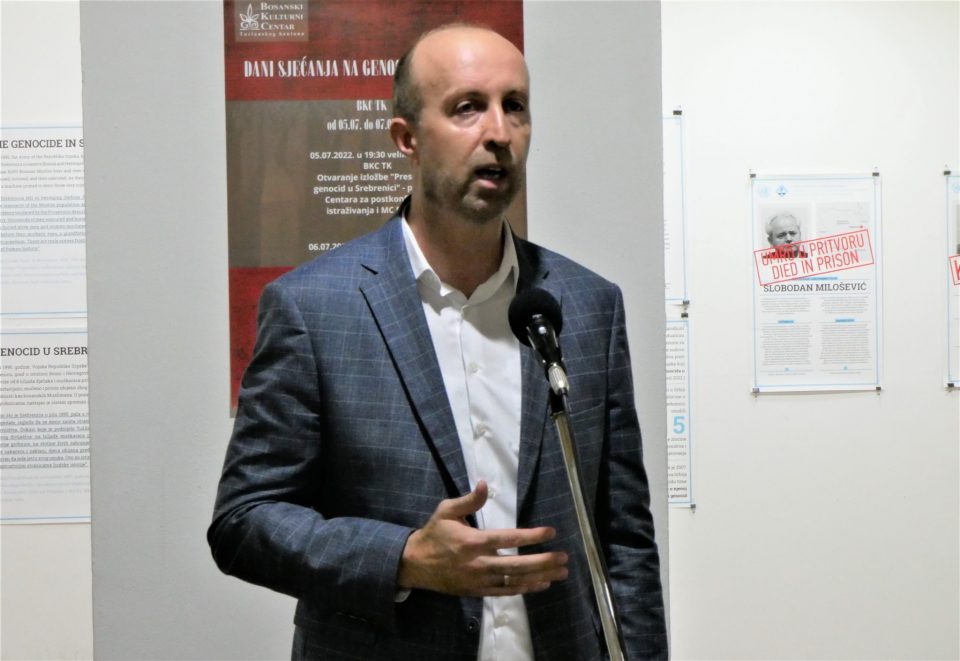
“The average sentence of the Court in The Hague is 15 years, and the Court of Bosnia and Herzegovina is 11 years,” said Gurda, stressing that it is very important to establish the official truth.
According to Gurda, Srebrenica is a symbol of suffering in Bosnia and Herzegovina, and a symbol of the suffering of humanity; however, when the numbers of those convicted are compared, more people were sentenced for war crimes committed in Prijedor. “A lot has been done, but still not enough,” Gurda says.
Jasmin Imamović, the Mayor of Tuzla, said that everything that is done in the Srebrenica Memorial Center must be done in every part of Bosnia and Herzegovina.
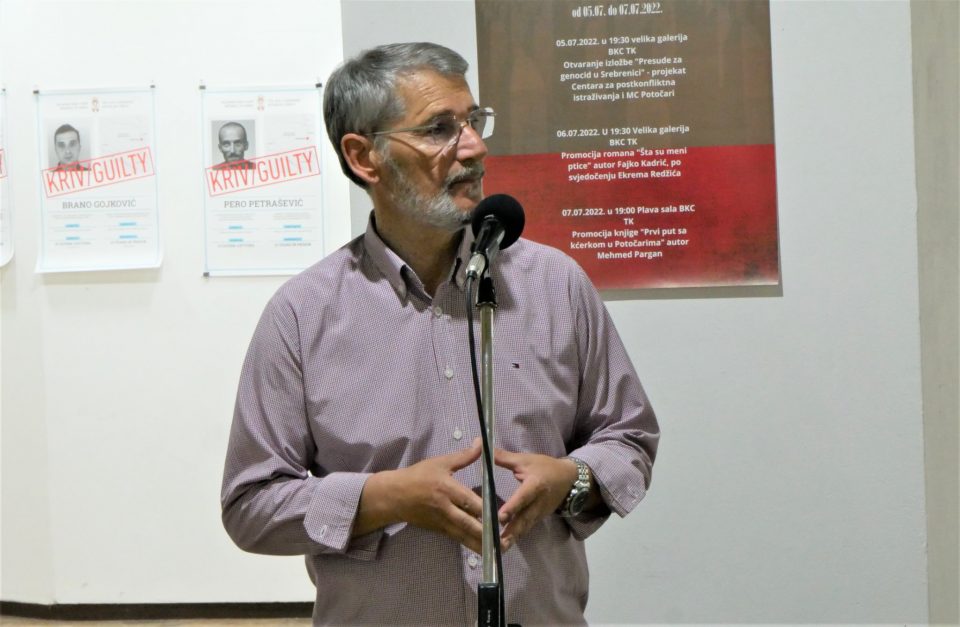
“We have to do it, first of all, out of respect for the victims of genocide and crimes against humanity. We have to do it for the sake of humanity, because it is the most terrible act that a person can commit against a person and humanity. We must stand up to genocide deniers because genocide denial is preparation for a new genocide. It is a textbook example of preparation for a new genocide. Genocide must never be experienced by anyone ever again – not by Bosniaks, Serbs, Croats, or any people, anyone,” said Imamović.
Ahmed Omerović, Minister of Education and Science of the Government of Tuzla Canton, emphasized the importance of preserving the memory of the genocide and crimes to ensure that they are not repeated.
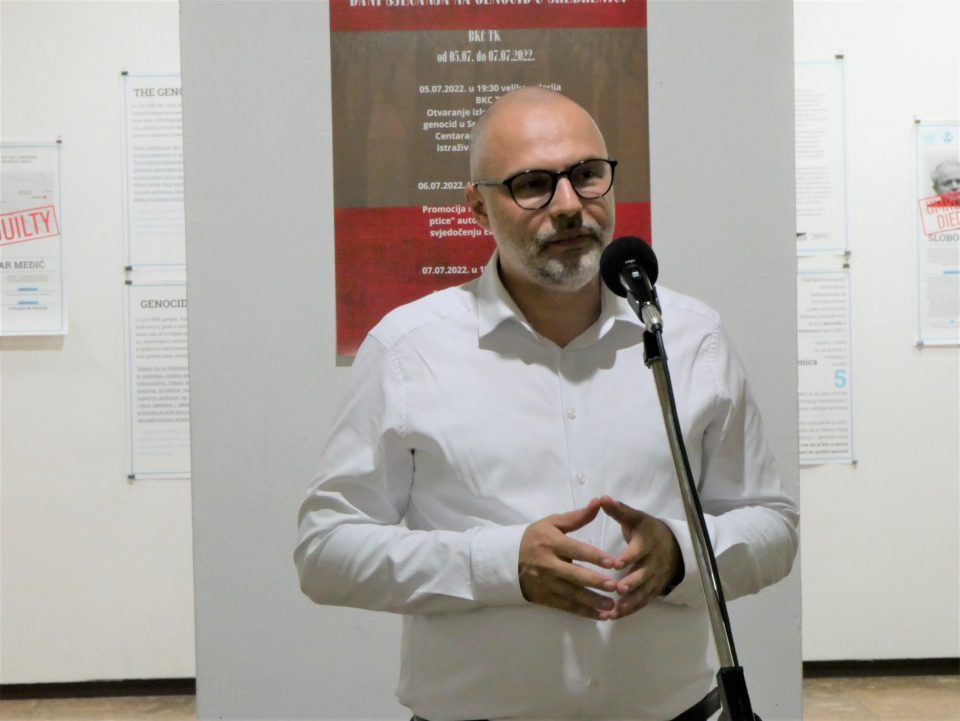
The exhibition “Genocide in Srebrenica Through Legal Judgements” was open in the Bosnian Cultural Center in Tuzla from July 5 until July 13, 2022, with the aim of commemorating the 27th anniversary of the genocide in Srebrenica.
